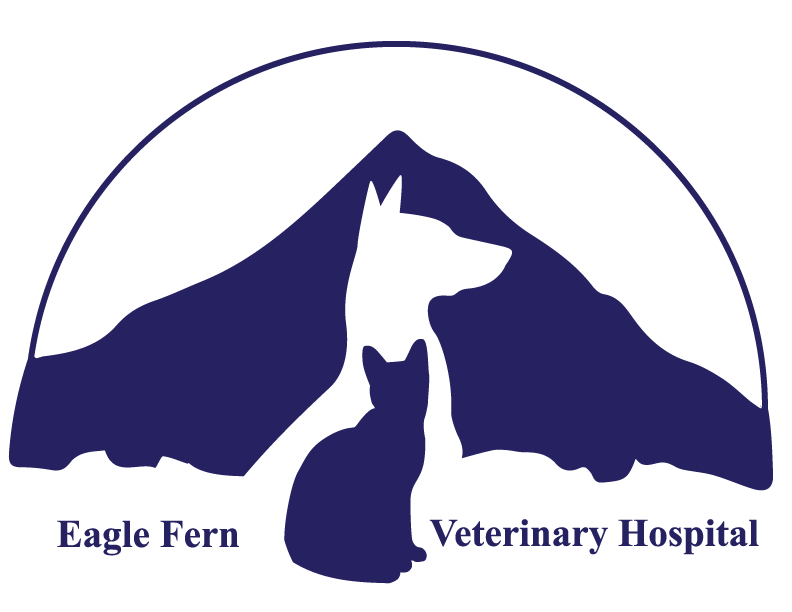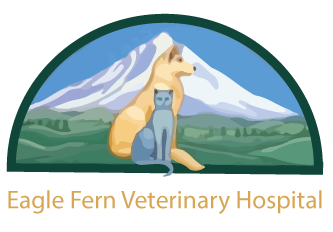|
 Dog Vaccinations Dog Vaccinations
Vaccinations provide protection from infectious diseases your dog may be exposed to. Vaccinations and preventive care for your dog is a medical decision and a medical procedure that should be individualized based on the risk and lifestyle of the individual animal. We want to help you make the right decision for your pet. We follow the vaccination guidelines developed by the American Animal Hospital Association (www.aahanet.org). Vaccinations are classified as core or non-core. Core vaccines are those that all dogs should receive. Non-core vaccines are optional and should be administered selectively, based on the animal's geographic and lifestyle exposure and assessment of risk/benefit ratios.
Core Vaccinations - recommended for all dogs
Rabies - initial vaccination is given as one dose as early as 12 weeks of age. Revaccinate one year later, thereafter every 3 years.
Rabiesis a severe viral disease affecting the nervous system of almost all mammals, including man. It is commonly spread by contact with infected saliva through a bite wound. There is no cure once symptoms occur.
DHPP - initial puppy vaccination is given at 6-8 weeks of age, then every 3-4 weeks until 12-14 weeks of age. Initial adult (dogs >16 weeks of age) vaccination is 2 doses 3-4 weeks apart. Revaccinate one year later, thereafter every 3 years.
Distemper(D) is caused by a virus with affects a wide variety of body tissues including intestinal, respiratory and nervous systems. Symptoms include fever, lack of appetite, diarrhea, pneumonia or seizures. Death commonly occurs in 1-3 weeks.
Hepatitis (H) is a virus affecting the liver. Signs vary from mild infection, fever, lack of appetite, abdominal pain and bleeding. The disease can result in death.
Parainfluenza(P) is an airborne virus that affects the upper respiratory tract and is a component of the infectious agents that cause "kennel cough", a persistent, dry, hacking cough. This disease may last weeks if not treated and is highly contagious especially in kennel type situations.
Parvo (P) is an intestinal virus which results in severe vomiting, bloody diarrhea, decreased appetite, depression and dehydration. Parvo infections are often severe in puppies, requiring intensive veterinary care for a cure. Parvo is often fatal without treatment.
Noncore Vaccinations - given based on risk and lifestyle exposure
Bordetella - initial vaccination given as early as 8 weeks of age, repeat in 2-4 weeks then annually or every 6 months in very high risk animals. If an animal has not been vaccinated within the previous 6 months, a booster is recommended 1 week prior to boarding, obedience school or showing where the risk of exposure is highest.
Bordetella is a bacteria which causes a respiratory infection. Together with parainfluenza, these infectious agents cause "kennel cough", a persistent, dry, hacking cough. This disease may last weeks if not treated and is highly contagious especially in kennel type situations. The vaccine is recommended if the dog: 1) is ever boarded in a kennel, groomed or attends obedience classes or dog shows, 2) is regularly allowed to go outdoors, 3) the dog has regular exposure to other dogs with unknown health status, or 4) is on a first name basis with animal control.
Leptospirosis - initial puppy vaccination is given at 12 weeks of age and repeated in 2-4 weeks. Initial adult vaccination is two doses, 2-4 weeks apart. Revaccination is in one year then annually.
Leptospirosisis caused by bacteria found in urine or urine contaminated areas. It can cause kidney or liver disease and may be fatal. Leptospirosis can be transmitted from animals to man. The vaccine is recommended if the dog: 1) goes outside and is not constrained to a yard or kennel, 2) lives in a rural area, 3) has opportunities for unsupervised outdoor activity, 4) has exposure to waterways, 5) used for hunting or other extended outdoor activity, 6) has access to areas inhabited by "reservoir" hosts ie. opossum, skunk, raccoon, cattle, or pigs.
Lyme - initial puppy vaccination is given at 9-12 weeks of age and repeated in 2-4 weeks. Initial adult vaccination is two doses, 2-4 weeks apart. Revaccination is in one year then annually prior to start of tick season.
Lyme disease is caused by bacteria which is transmitted by a tick bite. It causes fever, lethargy, and joint pain. It can result in chronic problems in animals and man. The vaccine is recommended if the dog will be traveling to the Northeastern US or upper Midwest, known endemic areas of Lyme disease. Because the incidence of Lyme disease is low in Oregon, it is recommended to provide protection against ticks with Advantix or Frontline prior to exposure to ticks when in wooded areas and monthly during tick season. By doing so, you will protect your dog against possible Lyme disease.
| 
